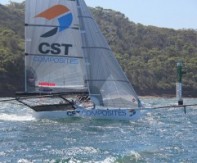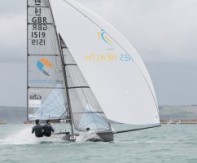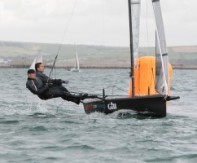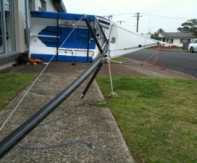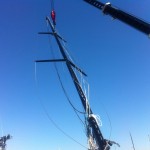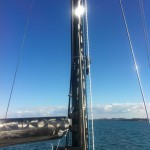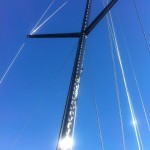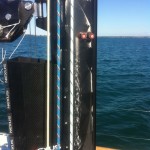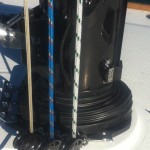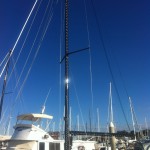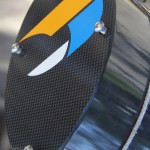Take a sneak peek at the inside workings of CST BIG TUBE WINDING.
 CST Composites will be exhibiting at JEC Asia 2011, stand E11, at Suntec City Singapore from October 18 through 20. We invite you to visit us at our stand and discuss current technologies and any applications you may have for filament wound, pultruded or fabricated composite products.
CST Composites will be exhibiting at JEC Asia 2011, stand E11, at Suntec City Singapore from October 18 through 20. We invite you to visit us at our stand and discuss current technologies and any applications you may have for filament wound, pultruded or fabricated composite products.
In attendance will be our Managing Director, Clive Watts, our Design Engineer, Nathan Howell, and our Business Development Manager, Gerard Laffan
CST Composites will take the opportunity to showcase its capabilities in filament winding, pultrusion and composites fabrication.
We recently completed the design, production and machining of large diameter filament wound tubes for a ground demonstration article for the application on the International Space Station. Sections of these parts, along with other filament wound , pultruded and fabricated components will be on display at its stand, E11.
For the first time in Asia, the company will demonstrate its capabilities in the design, manufacture and production control via its Manufacturing Enterprise Systems that coordinates its computer driven manufacturing equipment and provides reproducible parts along with statistical information to ensure quality and performance are at the forefront of its production.
For more information on JEC Asia 2011, please visit the JEC website.
CST 18ft Skiff Wins San Fran
After a short development period Howie Hamlin and his crew steered the “CST Composites” 18ft skiff to victory in San Fransisco.
In the lead up to the JJ Giltnan and the San Fran Regatta, the CST engineering team developed new mandrels and products to provide Howie and his team with the winning platform they were looking for.
Archie massey, Dan Wilsdon and Mike McKensey will also be joining the CST team, putting together a strong 18ft campaign off the back of their I14 World Title victory.
Archie and his team will have the latest CST rigs from the “ELITE” series. This incorporates a number of innovative ideas that developed from the I14, providing them with the stiffest rigs in the fleet.
THREE IN A ROW FOR CST
CST is proud to congratulate Archie Massy and Dan Wilsdon who have won the 2011 Artemis I14 World Titles recently held in Weymouth Bay.
Constant mast development has resulted in three back to back wins in this class for CST.
We aim to transfer our expertise and advances to the 16ft skiff class and hope to continue our successes into the future.
We have created a new blog and newsletter. The blog covers the 16′ skiff development and can be read here. The newsletter was created to keep our customers informed about dinghies, trailer sailers, yachts and multihulls. Click here to subscribe.
Pricing has been set for the one piece 16′ Skiff masts.
Two masts are currently being fully rigged.
We can currently supply four fully rigged masts per week.
Please contact us for pricing.

